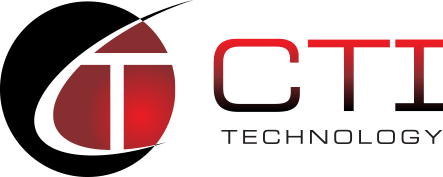Understanding the Role and Benefits of IT Outsourcing
In today’s technology-driven business landscape, you may have frequently heard the term “Managed Services Provider” (MSP) thrown around. An MSP is a third-party company that remotely manages a customer’s IT infrastructure and end-user systems proactively under a subscription model. Rather than waiting for something to break, MSPs focus on preventing issues before they disrupt your business operations, offering comprehensive monitoring, maintenance, and support services.
The concept of managed services emerged as pioneering companies recognized the need for more efficient IT support beyond the traditional break-fix model. When you partner with an MSP, you outsource specific IT functions to specialists who can provide in-house expertise and resources that might otherwise be unavailable or unaffordable. According to some industry reports, this arrangement can reduce your IT costs by up to 40% while increasing efficiency by 50-60%.
Key Takeaways
- Managed Service Providers deliver proactive IT maintenance and support through subscription-based models, helping prevent problems before they impact your business.
- Working with an MSP can significantly reduce IT costs while providing access to specialized expertise and the latest technologies without hiring additional in-house staff.
- The right MSP is a strategic partner that aligns technology solutions with your business goals and adapts to your evolving needs.
Understanding Managed Services Providers (MSPs)
Managed Services Providers offer strategic IT management, enabling businesses to offload technology responsibilities while maintaining operational efficiency. These specialized organizations handle ongoing monitoring, maintenance, and support through contractual agreements with defined service levels.
Defining Managed Services
A Managed Services Provider (MSP) is a company that remotely manages your IT infrastructure and systems on a proactive basis. Unlike traditional break-fix models, MSPs work under a subscription model where you pay a regular fee for comprehensive IT management.
This approach shifts IT from a reactive to a proactive mindset. Your MSP takes responsibility for maintaining, anticipating, and addressing a range of processes and functions before problems affect your business operations.
MSPs typically offer services like:
- Network monitoring and management
- Security services and cybersecurity
- Cloud infrastructure management
- Help desk support
- Backup and disaster recovery
Your relationship with an MSP is formalized through a Service Level Agreement (SLA) outlining responsibilities, expectations, and performance metrics.
The Evolution of MSPs
The MSP model has transformed significantly from its origins in the 1990s as application service providers. Initially focused on remote monitoring and management of servers and networks, today’s MSPs deliver comprehensive technology solutions across diverse business environments.
Modern MSPs have expanded beyond basic maintenance to become strategic technology partners. Many MSPs now specialize in specific industries or technologies, offering tailored expertise for healthcare, finance, manufacturing, and other sectors.
The rise of cloud computing has further evolved the MSP landscape. Many providers now offer cloud services management alongside traditional infrastructure support, helping you navigate complex hybrid environments.
Automation and artificial intelligence have also transformed how MSPs deliver services, enabling more efficient monitoring, faster issue resolution, and predictive maintenance of your systems.

Key Functions of an MSP
Managed Service Providers handle essential IT operations that businesses often struggle to maintain internally. These functions streamline technology infrastructure while ensuring reliability, security, and efficiency across your business operations.
Network Management
MSPs excel at keeping your network infrastructure running smoothly through proactive monitoring and maintenance. They handle critical components like routers, switches, and firewalls to ensure consistent uptime and performance.
Your network receives 24/7 monitoring for potential issues, allowing problems to be addressed before they affect your operations. This includes bandwidth optimization, traffic management, and ensuring proper connectivity across all business locations.
MSPs implement automated alerting systems that detect unusual patterns or potential failures in your network infrastructure. They also manage:
- Network device configurations and updates
- WAN/LAN optimization
- IP address management
- Quality of Service (QoS) implementation
- Cloud connectivity integration
These services reduce the need for in-house network specialists while providing enterprise-grade infrastructure management at predictable costs.
IT Support Services
The backbone of MSP offerings is comprehensive IT support delivered through various service tiers. This typically includes helpdesk services that provide your team with technical assistance through multiple channels, such as phone, email, and chat.
MSPs troubleshoot hardware and software issues that might otherwise disrupt your workflow. Depending on the complexity of the problem, many provide both remote and on-site support.
Most providers implement ticket tracking systems to prioritize and monitor support requests, ensuring nothing falls through the cracks. Key support components include:
- User account management
- Hardware procurement and lifecycle management
- Software deployment and updates
- System performance optimization
- Backup and recovery assistance
MSPs also manage vendor management, liaising between your business and various technology suppliers to resolve complex issues efficiently.
Security and Compliance
MSP security services protect digital assets through layered defense strategies and compliance management. They implement comprehensive security solutions, including anti-malware, firewalls, intrusion detection, and endpoint protection.
Your organization benefits from regular security assessments that identify vulnerabilities before exploitation. MSPs also conduct security awareness training for your employees, who often represent the first line of defense against cyber threats.
Compliance management is increasingly crucial for businesses across industries. MSPs help you navigate complex regulatory requirements by:
- Implementing necessary security controls
- Maintaining required documentation
- Conducting regular compliance audits
- Developing incident response plans
- Managing security patches and updates
Many providers offer additional security services like encryption management, multi-factor authentication implementation, and dark web monitoring to provide comprehensive protection against evolving threats.
Benefits of Partnering with an MSP
Working with a Managed Services Provider offers significant advantages that can transform your IT operations and business performance. These partnerships deliver measurable value through financial benefits, preventative maintenance, stronger security, and access to expertise without the overhead of hiring specialized staff.
Cost Efficiency
Partnering with an MSP converts unpredictable IT expenses into a consistent monthly fee, making budgeting more straightforward. You’ll eliminate large capital expenditures for infrastructure and software since MSPs typically provide these resources as part of their service.
Most businesses experience cost savings when working with a managed services provider compared to maintaining an in-house IT department. This is particularly valuable for small and medium-sized businesses that cannot justify full-time specialists for every IT function.
The MSP model also eliminates unexpected repair costs and emergency service fees. Instead of paying premium rates for emergency support, you receive continuous monitoring and maintenance as part of your agreement.
You’ll benefit from economies of scale since MSPs spread their costs across multiple clients, giving you access to enterprise-grade solutions at a fraction of what they would cost individually.
Proactive Approach to IT
MSPs implement continuous monitoring systems that identify and address potential issues before they cause downtime. This proactive stance dramatically reduces business disruptions compared to the traditional break-fix model.
Regular security patches and automatic upgrades are routinely handled by MSPs, ensuring your systems remain current without requiring your attention. Your infrastructure receives ongoing optimization based on performance data, preventing slowdowns before they impact productivity.
Preventative maintenance becomes standard practice rather than an afterthought. MSPs typically perform routine system checks, updates, and cleanups during off-hours to minimize business interruptions.
You’ll receive detailed reports on system performance, allowing for data-driven decisions about future technology investments. This forward-looking approach helps you plan IT initiatives that align with business goals rather than simply reacting to problems.
Enhanced Security
MSPs deliver comprehensive security solutions that would be prohibitively expensive for most organizations to implement independently. This includes advanced threat detection, vulnerability management, and rapid incident response capabilities.
A major advantage is accessing a 24/7 Security Operations Center (SOC) that monitors your systems for suspicious activities. This round-the-clock vigilance ensures threats are identified and addressed regardless of time of day.
MSPs implement multi-layered security frameworks, including firewalls, endpoint protection, email filtering, and data encryption. These defenses work together to protect your business from evolving cyber threats.
You’ll benefit from regular security assessments that identify vulnerabilities before exploitation. MSPs also manage compliance requirements, helping you meet industry regulations without developing this expertise in-house.
Access to Expertise and Latest Technologies
Partnering with an MSP provides immediate access to specialists with diverse skills and certifications. This collective expertise and experience would be impossible to match with a small internal IT department.
MSPs stay current with emerging technologies and can advise on which innovations would benefit your specific business needs. This guidance helps you avoid costly investments in technologies that won’t deliver value.
Your business gains access to enterprise-grade tools and platforms that would otherwise be unaffordable. These sophisticated solutions are managed by professionals who understand how to maximize their capabilities.
MSPs maintain partnerships with major technology vendors, giving customers preferred pricing and support channels. These relationships ensure that customers receive timely assistance when vendor-specific issues arise.
Selecting the Right MSP
Choosing an appropriate Managed Services Provider requires carefully evaluating your business requirements and the MSP’s capabilities. The selection process should be methodical and thorough to ensure a productive long-term partnership.
Assessing Your Business Needs
Before engaging with potential MSPs, conduct a comprehensive internal assessment of your IT requirements. Identify your technology pain points, security concerns, and growth objectives to establish clear expectations.
Document your current IT infrastructure, including hardware, software, and network components. This inventory will help potential providers understand your environment and propose appropriate solutions.
Consider your budget constraints and determine which services are essential and which are optional. Many organizations waste resources by purchasing unnecessary services that don’t align with their needs.
Prioritize your requirements based on business impact. Critical systems that affect revenue or customer experience should receive the highest attention when evaluating MSP capabilities.
Evaluating MSP Expertise and Services
Look for providers with proven experience in your specific industry. An MSP familiar with your sector will understand regulatory requirements and common challenges unique to your business environment.
Request detailed case studies and client references that demonstrate the MSP’s ability to support organizations similar to yours. Don’t hesitate to contact these references directly for honest feedback.
Examine the MSP’s technical certifications and partnerships with major technology vendors. These credentials indicate the provider’s commitment to maintaining expertise and access to advanced solutions.
Consider the MSP’s size and scalability relative to your business needs. As Softlanding notes, your provider should be able to grow alongside your organization without service disruptions.
Evaluate their response time guarantees and support availability. A reliable MSP should offer 24/7 support if your business operations require it.
Understanding Service Level Agreements (SLAs)
Review proposed SLAs carefully to understand exactly what services are included and excluded. The agreement should clearly define performance metrics, response times, and resolution timeframes for different issue priorities.
Pay special attention to penalty clauses and remediation processes if service levels aren’t met. These protections ensure accountability and demonstrate the MSP’s confidence in their service quality.
Ensure the SLA includes regular reporting mechanisms and communication protocols. You should receive detailed performance reports and scheduled review meetings to address concerns.
According to CompTIA, contract terms should include provisions for termination if needed. Understanding the exit strategy beforehand prevents potential complications if you need to change providers.
Negotiate flexibility in your agreement to accommodate changing business needs. Your SLA should allow scaling services up or down as your requirements evolve.
Managed Services Models
MSPs operate under different service models that determine pricing structures, service scope, and client relationships. The right model depends on business needs, budget constraints, and desired IT management approach.
Break/Fix vs. Retainer Models
The break/fix model represents the traditional approach where clients pay for IT services only when something breaks. You contact the provider, and they fix the issue. You receive a bill for time and materials. This reactive model offers lower upfront costs but can lead to unpredictable expenses and downtime.
In contrast, retainer models focus on prevention rather than cure. You pay a consistent monthly fee for ongoing monitoring, maintenance, and support. This proactive approach helps identify potential issues before they cause disruptions.
Many businesses transition from break/fix to retainer models as they grow, seeking predictable IT costs and fewer emergencies. Retainer models typically include service level agreements (SLAs) that guarantee response times and performance standards.
All-Inclusive vs. À La Carte Services
All-inclusive packages provide comprehensive IT management under one fixed monthly fee. You receive a bundle of services covering everything from network monitoring to cybersecurity and cloud management. This model works well if you need complete IT oversight with budget predictability.
Benefits of all-inclusive plans:
- Predictable monthly costs
- Comprehensive coverage
- Simplified billing
- Strategic IT planning
À la carte services allow you to select specific functions based on your needs. Managed service providers offer modular options like security monitoring, backup solutions, or help desk support that you can combine as needed. This model provides flexibility for businesses with specific requirements or internal IT teams seeking targeted support.
This approach works particularly well for organizations with unique compliance needs or specialized technologies requiring expert management.
Industry Applications of MSPs
Managed Services Providers deliver specialized IT solutions across diverse sectors, adapting their offerings to meet unique industry requirements while helping organizations focus on their core business functions rather than technical infrastructure management.
Healthcare
Healthcare organizations leverage MSP services to maintain HIPAA compliance and secure patient data while managing complex medical systems. Your healthcare facility can benefit from dedicated IT support that understands electronic health record (EHR) systems and medical device integration.
MSPs help you implement telehealth solutions and maintain the high availability required for critical care systems. With cybersecurity threats targeting healthcare at record levels, an MSP can establish robust security protocols to protect sensitive patient information.
Key benefits include:
- Reduced downtime for critical medical systems
- Compliance management for evolving healthcare regulations
- 24/7 monitoring of vital infrastructure
- Integration between medical devices and information systems
Finance
Financial institutions face strict regulatory requirements and constant cybersecurity threats. Your financial organization can utilize MSPs to implement comprehensive security measures that protect sensitive client data and maintain compliance with GDPR, SOX, and PCI DSS regulations.
Managed service providers in finance excel at implementing disaster recovery solutions and ensuring business continuity. They help you maintain the continuous uptime expected by modern financial customers.
MSPs can manage:
- Secure transaction processing systems
- Fraud detection tools
- Customer-facing digital banking platforms
- Regulatory reporting systems
With an MSP handling your technical infrastructure, your financial team can focus on customer service and core business operations rather than IT troubleshooting.
Manufacturing
In manufacturing environments, MSPs help you implement and maintain specialized systems like Enterprise Resource Planning (ERP), Manufacturing Execution Systems (MES), and Industrial Internet of Things (IIoT) solutions. Your production facilities benefit from minimal downtime and optimized operations.
MSP support can extend to supply chain management systems, quality control infrastructure, and factory floor technologies. As manufacturing becomes increasingly digital, having dedicated IT expertise becomes essential.
MSPs provide:
- OT/IT convergence expertise
- Predictive maintenance system support
- Supply chain visibility solutions
- Data analytics for production optimization
Your manufacturing operation gains a competitive advantage through enhanced reliability and improved data utilization without maintaining a large in-house IT staff.
Small and Medium-Sized Enterprises (SMEs)
SMEs often benefit most from MSP relationships due to cost-effective access to enterprise-grade IT support. Your small business can leverage professional IT services without the expense of hiring a full technical team.
MSPs provide SMEs with scalable solutions that grow alongside their businesses. You pay only for the services you need, adjusting resources as your company expands.
Key SME benefits include:
- Predictable monthly costs instead of unexpected IT emergencies
- Enterprise-grade security normally unavailable to smaller businesses
- Strategic IT planning from experienced professionals
- Cloud migration assistance and ongoing management
Your SME can compete more effectively with larger organizations when you have access to the same quality of IT infrastructure and support through a trusted MSP relationship.
Challenges and Considerations in Managed Services
Working with Managed Services Providers brings significant benefits but requires careful navigation of potential pitfalls. Understanding these challenges helps organizations make informed decisions when selecting and managing MSP relationships.
Vendor Lock-In Risks
Vendor lock-in occurs when a business becomes overly dependent on a single MSP, making it difficult or costly to switch providers. This risk increases when proprietary technologies or customized solutions that aren’t easily transferable are implemented.
To mitigate lock-in risks:
- Request data portability guarantees in your service level agreements
- Document all processes managed by your MSP
- Maintain ownership of licenses and critical infrastructure where possible
- Establish clear exit strategies before signing contracts
Some MSPs may use proprietary tools that create technical dependencies. Before committing, evaluate how easily you could transition to another provider if necessary.
Regular assessments of your vendor relationship help identify emerging lock-in risks before they become problematic. Cost considerations should include current fees and potential future costs of changing providers.
Ensuring Service Continuity
Service disruptions can severely impact operations, making continuity planning essential when working with an MSP. Your provider should have robust disaster recovery protocols and redundancy measures in place.
Key continuity considerations include:
- Comprehensive SLAs with clearly defined uptime guarantees and response times
- Regular testing of failover and disaster recovery procedures
- Communication protocols for service interruptions
- Business continuity plans that account for MSP service failures
Ask potential providers about their track record during outages and their redundancy infrastructure. The best MSPs maintain multiple data centers and backup systems to ensure your services remain operational even during significant disruptions.
Your internal team should maintain sufficient knowledge of critical systems to manage basic functions during provider outages. This balanced approach prevents complete dependency while still leveraging MSP expertise.
Alignment with Business Goals
MSPs deliver maximum value when their services directly support your strategic objectives. Misalignment between your business goals and MSP capabilities can result in paying for unnecessary services or missing critical support areas.
To ensure proper alignment:
- Define clear success metrics tied to business outcomes before engagement
- Regularly review performance against these metrics
- Maintain open communication about changing priorities
- Involve MSPs in strategic planning when appropriate
Your MSP should function as a business partner, not just a technical vendor. This requires them to understand your industry, competitive landscape, and growth objectives.
Be wary of providers that offer one-size-fits-all solutions without customization to your specific needs. The most effective MSP relationships evolve, with services adapting to your changing business requirements and technology landscape.
Future Trends in Managed Services
The managed services landscape rapidly evolves with technological advancements reshaping how MSPs deliver value to their clients. These developments create new opportunities for businesses to leverage external expertise while focusing on their core operations.
Rising Adoption of Cloud Services
Cloud computing has become the backbone of modern managed services offerings. By 2025, more than 85% of businesses are expected to adopt a cloud-first strategy, requiring MSPs to enhance their cloud service capabilities. This shift is transforming traditional infrastructure management into more flexible, scalable solutions.
You’ll find MSPs increasingly bundling comprehensive cloud services, including:
- Multi-cloud management: Coordinating resources across AWS, Azure, and Google Cloud
- Cloud migration expertise: Streamlined transitions from legacy systems
- Cloud cost optimization: Maximizing ROI while minimizing unnecessary spending
Many forward-thinking MSPs now position themselves as Cloud Service Providers (CSPs), offering specialized expertise in cloud architecture, security, and compliance. This evolution allows you to access enterprise-level cloud capabilities without maintaining specialized in-house talent.
Advancements in Artificial Intelligence (AI)
AI and machine learning revolutionize how managed service providers deliver predictive and proactive support. These technologies enable MSPs to identify potential issues before they impact your operations.
Your MSP’s AI capabilities will likely include:
- Predictive analytics: Systems that forecast potential failures or bottlenecks before they occur.
- Automated remediation: Self-healing systems that fix common issues without human intervention
- Intelligent resource allocation: Dynamic adjustment of computing resources based on real-time needs
The future of managed services centers on delivering more value through intelligent automation. This shift reduces incident response times from hours to minutes or seconds, dramatically improving your operational reliability.
AI also enables more personalized service delivery, with systems that learn your specific business patterns and adjust support accordingly.
Growing Importance of Cybersecurity
Cybersecurity has emerged as perhaps the most critical component of modern managed services. As digital threats grow more sophisticated, MSPs invest heavily in advanced security capabilities to protect your business assets.
Your security considerations should include:
| Security Focus | MSP Implementation |
|---|---|
| Threat Detection | 24/7 monitoring with AI-powered tools |
| Incident Response | Documented procedures for rapid containment |
| Compliance Management | Industry-specific regulatory expertise |
The proactive managed services provider now emphasizes security by design rather than as an afterthought. This approach integrates security at every service level, from infrastructure to application management.
You’ll benefit from MSPs developing specialized security operations centers (SOCs) that provide enterprise-grade protection previously accessible only to large organizations. Many providers now offer virtual CISO services to help you navigate complex security landscapes without hiring full-time executives.
How CTI Technology Provides Experts Managed IT Services In Chicago
CTI Technology stands out as a true partner in IT operations for Chicago businesses. As an established managed services provider (MSP), they deliver comprehensive IT solutions tailored to your industry needs.
Their expertise extends beyond generic tech support. CTI Technology has demonstrated its commitment to growth by acquiring Apple specialist MacHero to address the increasing demand for Apple and Mac support.
Key Services Include:
- Proactive IT monitoring and maintenance
- Cybersecurity solutions
- Cloud services management
- Hardware and software support
- Strategic IT planning
When you partner with CTI Technology, you receive transparent service agreements. They believe you should clearly understand the services you’re paying for and what to expect from your relationship.
Their industry-specific approach means your business receives customized IT solutions rather than one-size-fits-all packages. This specialized knowledge becomes increasingly valuable as we move into 2025 and technology continues to evolve.
CTI Technology’s team stays current with emerging technologies and threats to ensure your systems remain efficient and secure. You benefit from their established expertise without the overhead of maintaining an in-house IT department.
For Chicago businesses seeking reliable managed IT services, CTI Technology offers the technical expertise and industry understanding needed to transform your IT operations.
Why Is CTI Technology The Best Choice For IT Services In The Chicagoland Region?






















